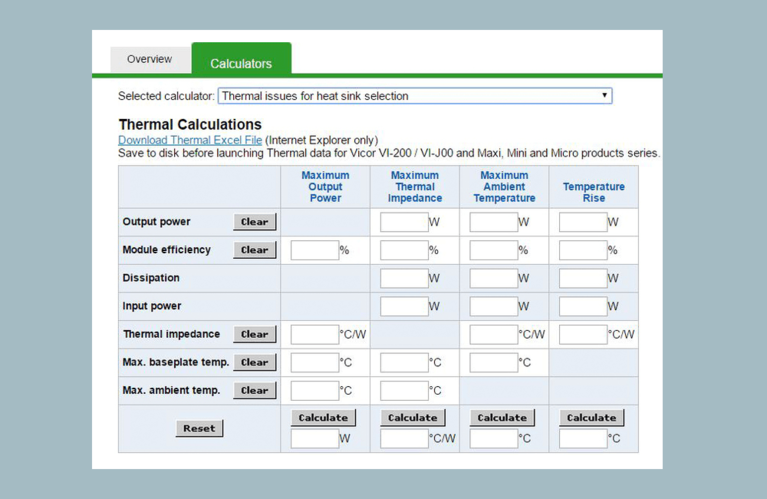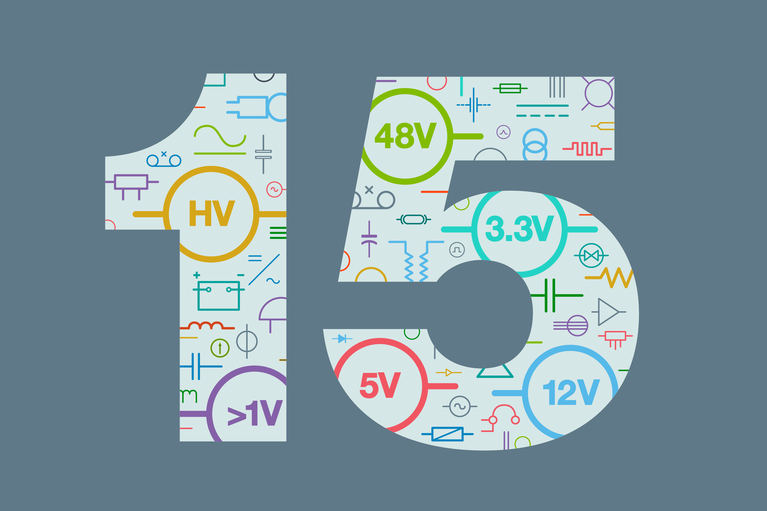
Optimizing DC-DC converter stability: AC and transient analysis in simulations of source impedance effects
Learn how to optimize DC-DC converter stability through AC analysis in the frequency-domain and transient analysis in the time-domain
Thermal calculations required when selecting heat sinking are relatively straightforward but can be time-consuming, particularly if you want to investigate the impact of changes to certain parameters. To help speed up the process of determining what heat sink is required for your design, the Vicor tool suite includes a calculator that lets you quickly and easily evaluate thermal issues for heat sink selection.
The tool can make four separate calculations:
Originally designed for use with Vicor modules, the tool can also be applied to thermal calculations for our other products. For more in-depth calculations, there is an option to download an Excel spreadsheet.
Ensuring adequate heat sinking is critical for reliable power system operation. Try the thermal calculation for heat sink selection, and see how it could speed up your development process.
Optimizing DC-DC converter stability: AC and transient analysis in simulations of source impedance effects
Learn how to optimize DC-DC converter stability through AC analysis in the frequency-domain and transient analysis in the time-domain
15 technical challenges to consider and conquer when designing a 48V power delivery network
To help better prepare for your 48V migration, consider the following 15 challenges as you embark on your first 48V designs
Future-proof automotive high-voltage-to-SELV conversion
Legacy 12V architecture is no longer capable of sustaining the rising electronic loads in automobiles. Learn how power modules hasten the transition to 48V
Power modules simplify creepage and clearance design solutions for electric vehicles
Overmolding is the key to solving arcing issues in 48V automotive power systems



